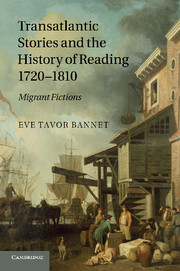PART II - THE SERVANT'S TALE
Published online by Cambridge University Press: 05 July 2011
Summary
INTRODUCTION
We make distinctions between chattel slavery, indentured servitude, convict servitude, and marriage which the transatlantic writers who follow often did not make. Our sense that the difference between lifelong slavery and temporally limited indentured servitude is a profoundly meaningful one, depends on implicitly modern assumptions about life expectancy which, for much of this period, servants and slaves in plantation colonies had little reason to share, given the appallingly high death rate of their fellow slaves and servants from seasoning, cruelty, punishment and disease within their first four years. English servants and African slaves often made common cause, running away together, drinking in dock-side taverns together, breaking the law together, marrying together and risking death together. Both were in situations where subjection was a present reality and neither survival nor regaining one's freedom seemed assured.
Language did not draw clear lines among these groups either. Slaves who worked as domestics or in skilled trades were often described as “servants”; indeed, according to the Oxford English Dictionary, in North America, “servant was the usual designation for a slave.” Indentured servants called themselves slaves, and often lived and worked side by side with slaves under much the same conditions. Transported convicts were indentured like servants only for longer periods, and were often sold as servants. Wives were the property of their husbands, as were indentured servants, indentured convicts and slaves; they too were bound to obey their lords and masters, and could legally be beaten and abused.
- Type
- Chapter
- Information
- Transatlantic Stories and the History of Reading, 1720–1810Migrant Fictions, pp. 111 - 114Publisher: Cambridge University PressPrint publication year: 2011



